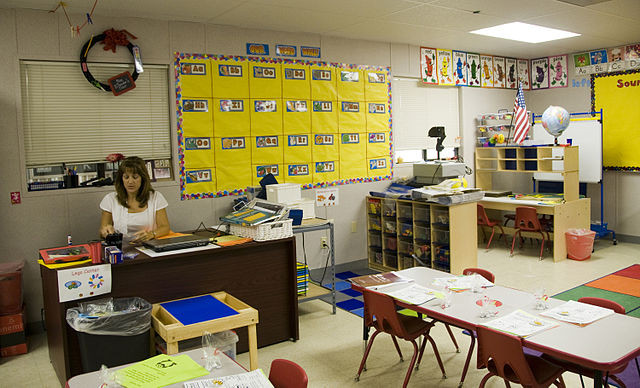The Texas State Board of Education has taken a significant step toward integrating Bible-focused lessons into the state's elementary school curriculum, sparking heated debate over the role of religion in public education. In a preliminary vote held Tuesday, the board narrowly approved the controversial "Bluebonnet Learning" curriculum, which incorporates teachings from the Bible, including the Golden Rule and stories from Genesis, into language and reading lessons for kindergarten through fifth grade. A final vote is set for Friday.
The curriculum, developed by the Texas Education Agency (TEA), would be optional for school districts, but schools adopting it would receive financial incentives. Republican Governor Greg Abbott has voiced strong support for the proposal, reflecting broader efforts in conservative states to include religious teachings in public education. Critics, however, argue that the curriculum disproportionately emphasizes Christianity, potentially alienating students of other faiths.
"This curriculum fails to meet the standard of an honest, secular one," said educator Megan Tessler during an emotional public hearing earlier this week. "Public schools are meant to educate, not indoctrinate." Others expressed concerns about the exclusion of other religious traditions and the potential erosion of a secular learning environment.
Supporters of the curriculum contend that the Bible has historical and cultural significance that can enrich education. "Stories and concepts in the Bible have been common for hundreds of years," said Cindy Asmussen, a vocal proponent who testified before the board. "Parents and teachers want a return to excellence."
The debate highlights a growing national movement to integrate religion into public schools, a trend that has drawn legal challenges and criticism from civil liberties groups. In Oklahoma, a similar effort to incorporate the Bible into public school curricula faces a lawsuit seeking to block its implementation. Meanwhile, a federal judge in Louisiana recently struck down a law mandating the display of the Ten Commandments in classrooms, ruling that it served an "overtly religious" purpose.
Mark Chancey, a professor of religious studies at Southern Methodist University, expressed skepticism about the Texas proposal. "Public schools should reflect the religious diversity of our state," he told the board. "It's concerning when one tradition receives in-depth treatment while others are overlooked." While Chancey acknowledged revisions made to the curriculum following public feedback, he maintained that the changes were insufficient to address its underlying biases.
Democratic board members echoed these concerns during Tuesday's meeting. "If we allow too much influence from any one religion, we risk damaging the experience of children with differing beliefs," said Rebecca Bell-Metereau, a Democrat from San Marcos. Republican members, however, remained steadfast in their support, emphasizing the curriculum's potential educational value. "I've sat in classrooms where it's being piloted, and I think it works," said Tom Maynard, a Republican from Florence.
The proposal has also drawn scrutiny for its treatment of sensitive historical topics, including slavery. The Texas Freedom Network, a watchdog group, criticized the curriculum for glossing over controversial aspects of American history. "This is about more than religion; it's about how we educate our children about our past and our values," the group stated.
If the board approves the curriculum on Friday, it will mark a significant milestone in the ongoing debate over the intersection of religion and public education. School districts adopting the curriculum would be among the first in the nation to implement Bible-integrated lessons at the elementary level. The decision also has broader implications, as Texas often sets national trends in textbook and curriculum standards.
Critics fear that the measure could face legal challenges, similar to other states where courts have blocked efforts to incorporate religious teachings into public schools.






